Who speaks for Muslim women? 🧵
In this thread let's have a brief overview and see who has stood for the "oppressed" women in the Muslim world. Note here that the intention is not to suggest that there are no issues with regard to women in the Muslim world but...,
1/
In this thread let's have a brief overview and see who has stood for the "oppressed" women in the Muslim world. Note here that the intention is not to suggest that there are no issues with regard to women in the Muslim world but...,
1/
... to see through an objective and academic lens, who have historically been the "voices" for Muslim women and the "oppression" they are subjected to through structural subordination.
So Let's begin.
2/
So Let's begin.
2/
At the beginning of feminism, it is an undoubtable fact that feminism was an essential instrumental tool and a moral justification for colonial dominance by the European powers. Feminism started in the West. And it was imposed on the Muslim world through colonialism.
3/
3/
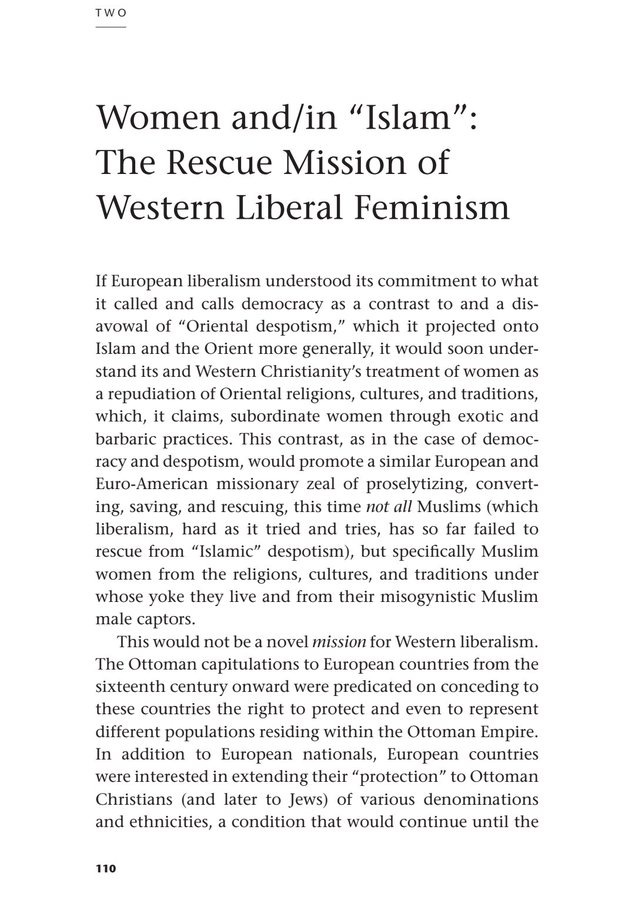
Feminism and women's rights have consistently been used as (one of) the moral justification for the invasion and colonisation of the Muslim world.
Feminism has always been tied to the imperial colonial project. White feminists wanted to liberate Muslim women from...
4/
Feminism has always been tied to the imperial colonial project. White feminists wanted to liberate Muslim women from...
4/
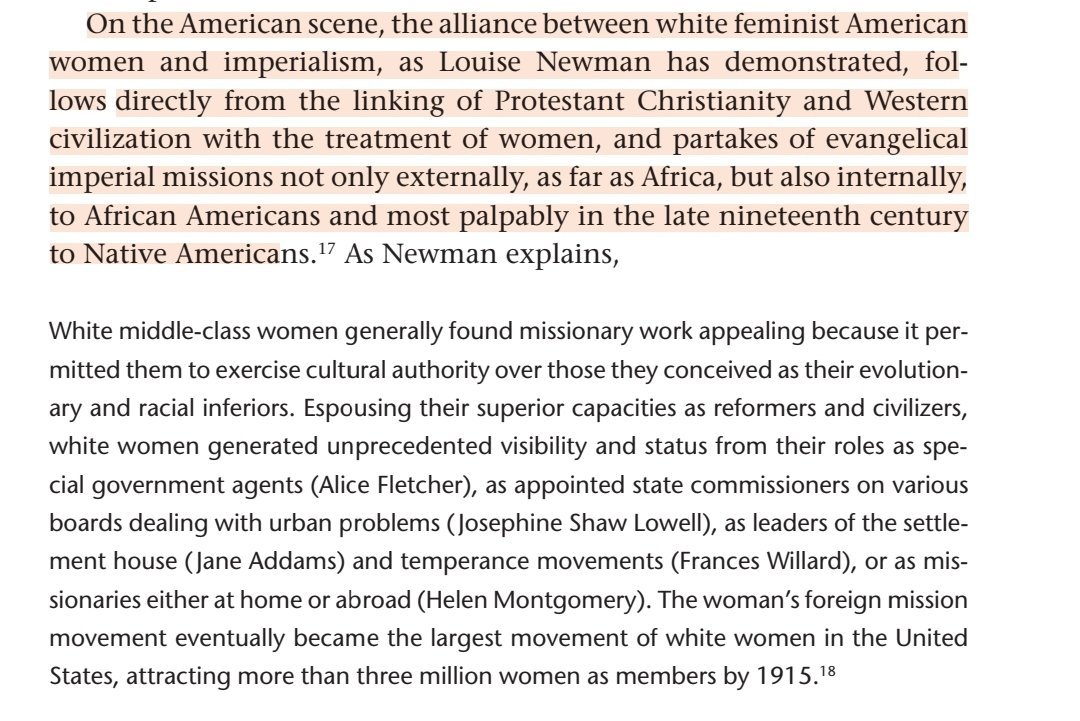
the slavery of Islam. The legacy of feminism has continued to our day, when in 2001, the US invaded AFG, they used feminism and the poor Muslim women being oppressed by barbaric Muslim men, as a moral justification.
5/
5/
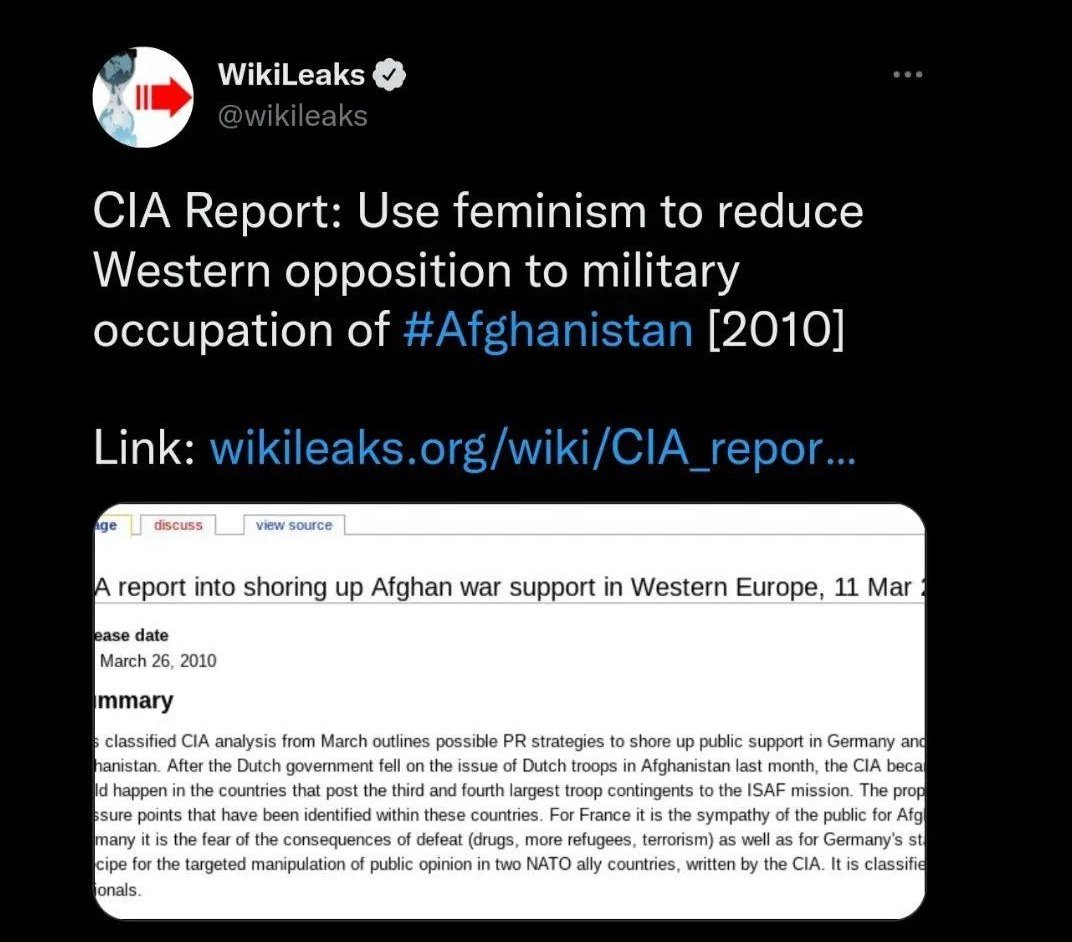
In addition to Protestant Christianity, feminism owes its debt to social Darwinism and social evolution, the idea the world is nothing but the survival of the fittest, and in the end, only the superior ie the white race (or specie in the case of the animal kingdom) remains.
6/
6/
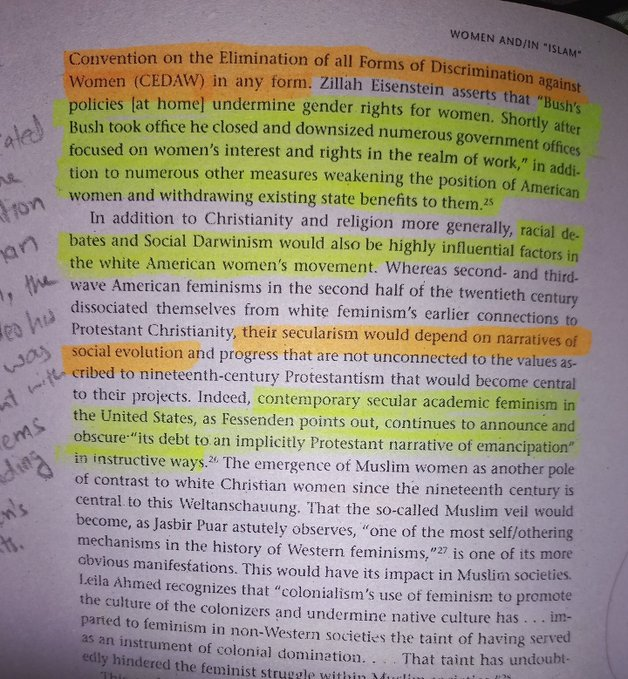
Wollstonecraft, one of the earliest feminists & a white supremacist considered Muslim women as slaves. She along with other feminists considered Islamic marriage as a form of slavery from which Muslim women should be saved.
7/

7/
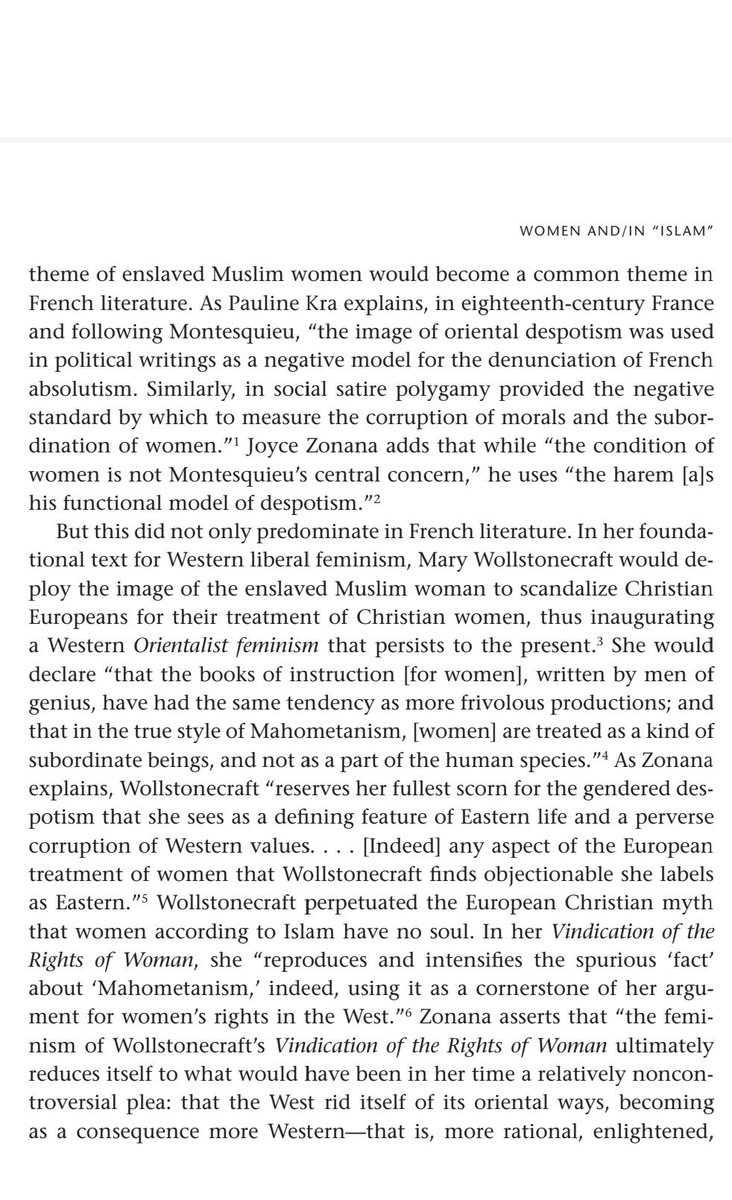
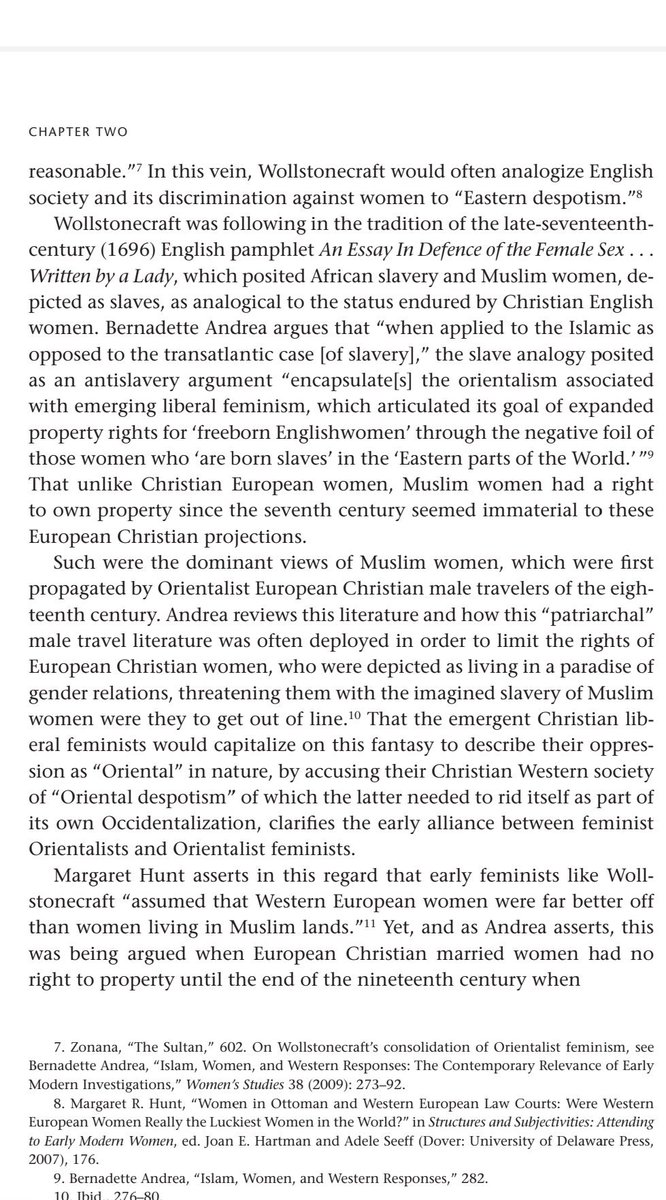
This is exactly the straightforward narrative that today's Pakistani feminists use.
8/
8/
Male and female Muslim feminists were equal in the task of their contribution to producing the image of "oppressed" Oriental Muslim women. It was through these narratives that the western evangelical Christian missionaries took up the task of "liberating" women from...
9/
9/
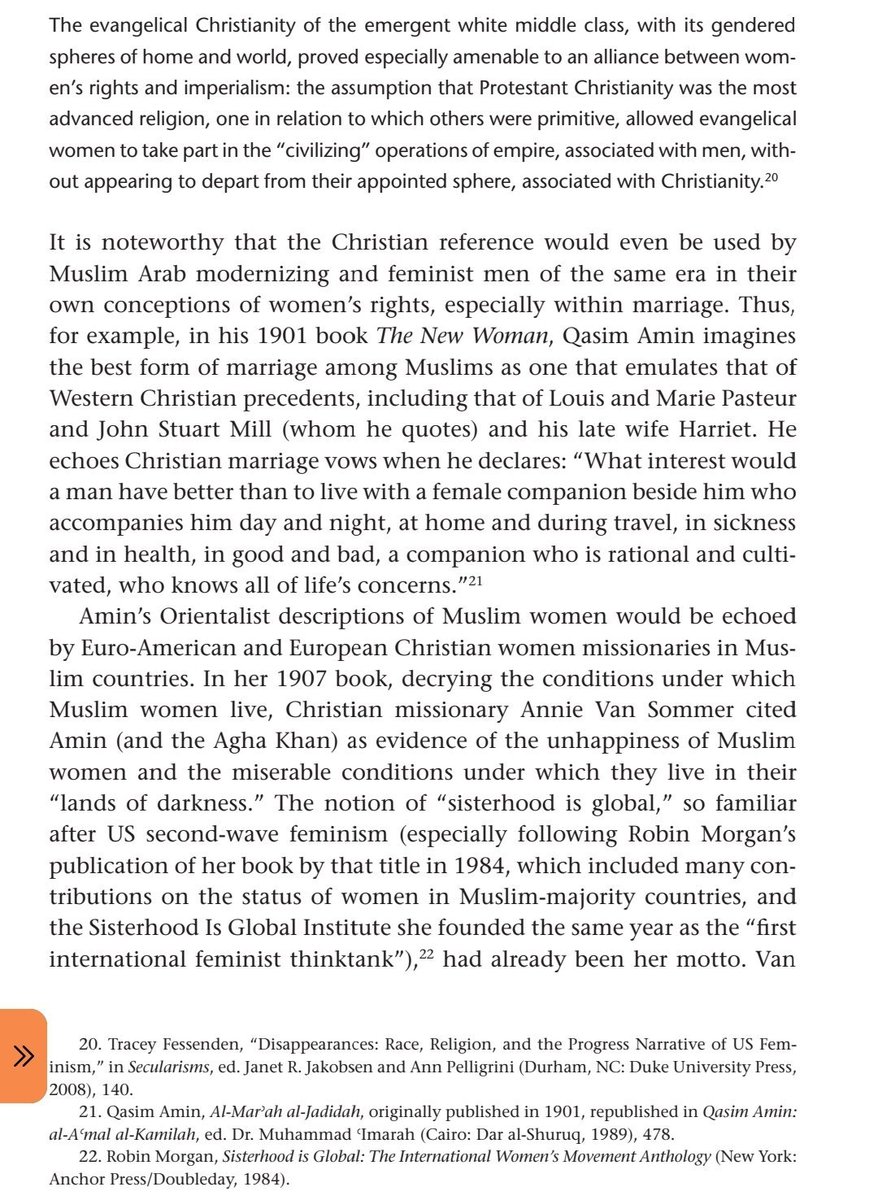
slavery imposed on them by "Islam".
And even when feminism entered the elite class in the Muslim world, it remained confined to it until very recently. Elite women such as Anna Nukhrat and Huda Shar'awi openly took off their hijabs in public.
10/


And even when feminism entered the elite class in the Muslim world, it remained confined to it until very recently. Elite women such as Anna Nukhrat and Huda Shar'awi openly took off their hijabs in public.
10/
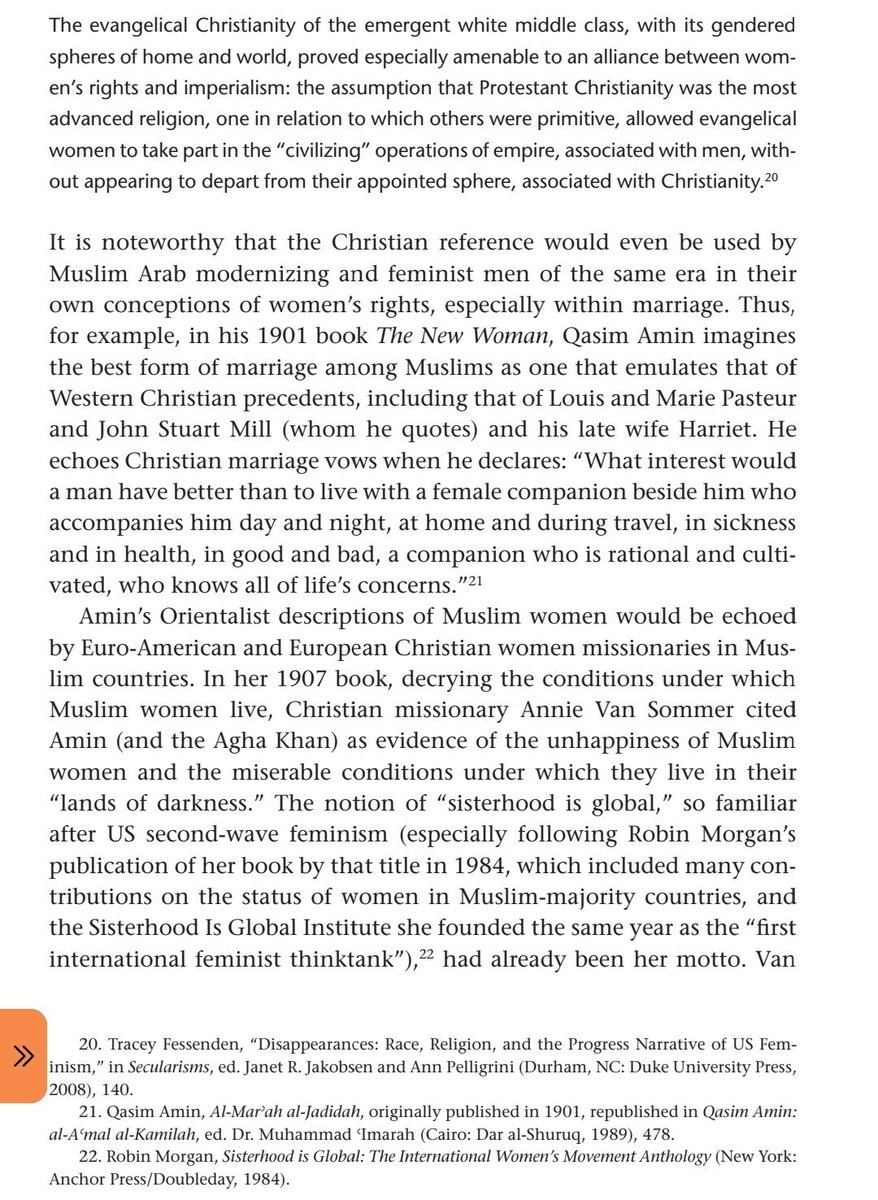
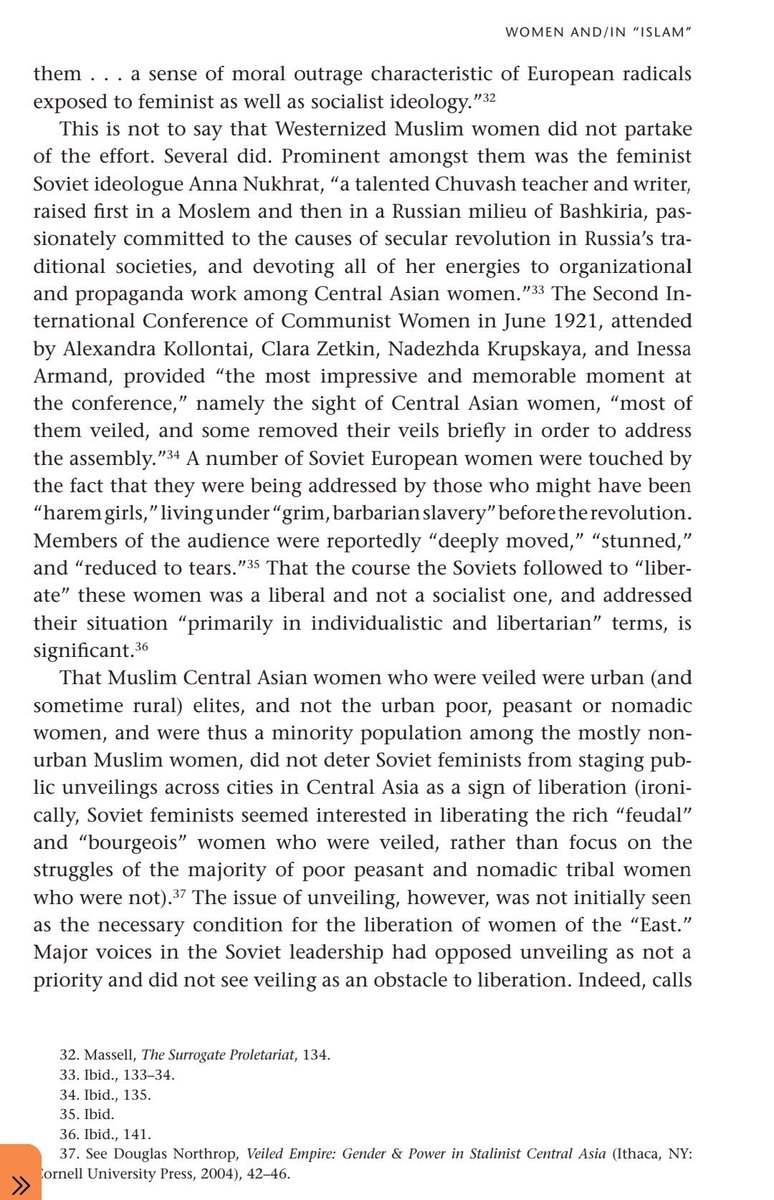
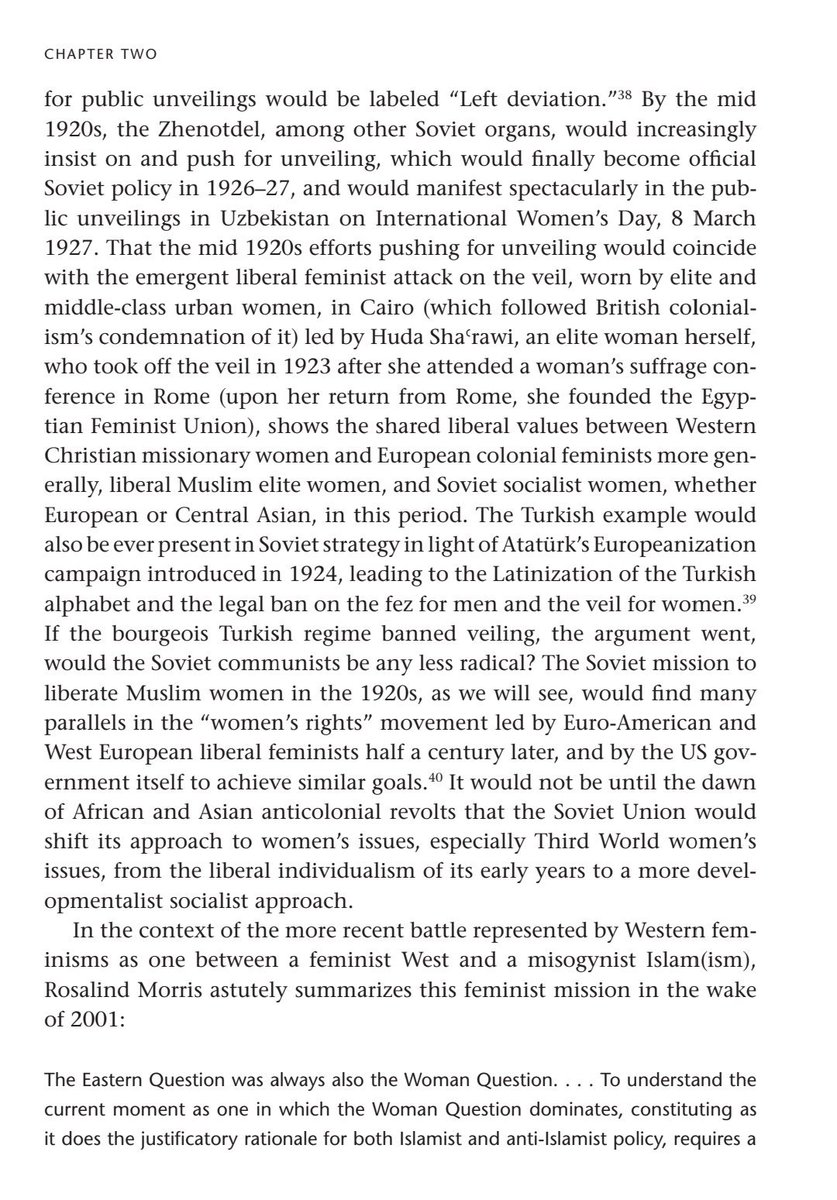
But the dogmas of feminism and Liberalism were still unheard of by the millions of local rural women.
An interesting aspect here is that rural women in Central Asian Muslim countries were not veiled, but only the urban women were. Western feminists saw the veil as an obstacle
11/
An interesting aspect here is that rural women in Central Asian Muslim countries were not veiled, but only the urban women were. Western feminists saw the veil as an obstacle
11/
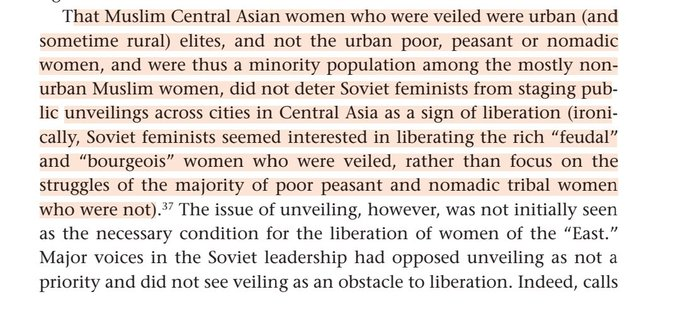
in the way of women's emancipation, and yet, the women who were veiled were the elite rich women who were anything but oppressed, at least not as oppressed as the rural women in the dictionary of white western feminists.
12/
12/
Let's extend the idea of "hijab as oppression" a few steps further. 13/
Franz Fanon in "A Dying Colonialism" talks about how Hijab would frustrate the colonizer. "The woman who sees w/o being seen".
And how the hijab was a site of psychological warfare that the French wanted to win (ie by taking off the hijab of the Muslim women).
14/

And how the hijab was a site of psychological warfare that the French wanted to win (ie by taking off the hijab of the Muslim women).
14/
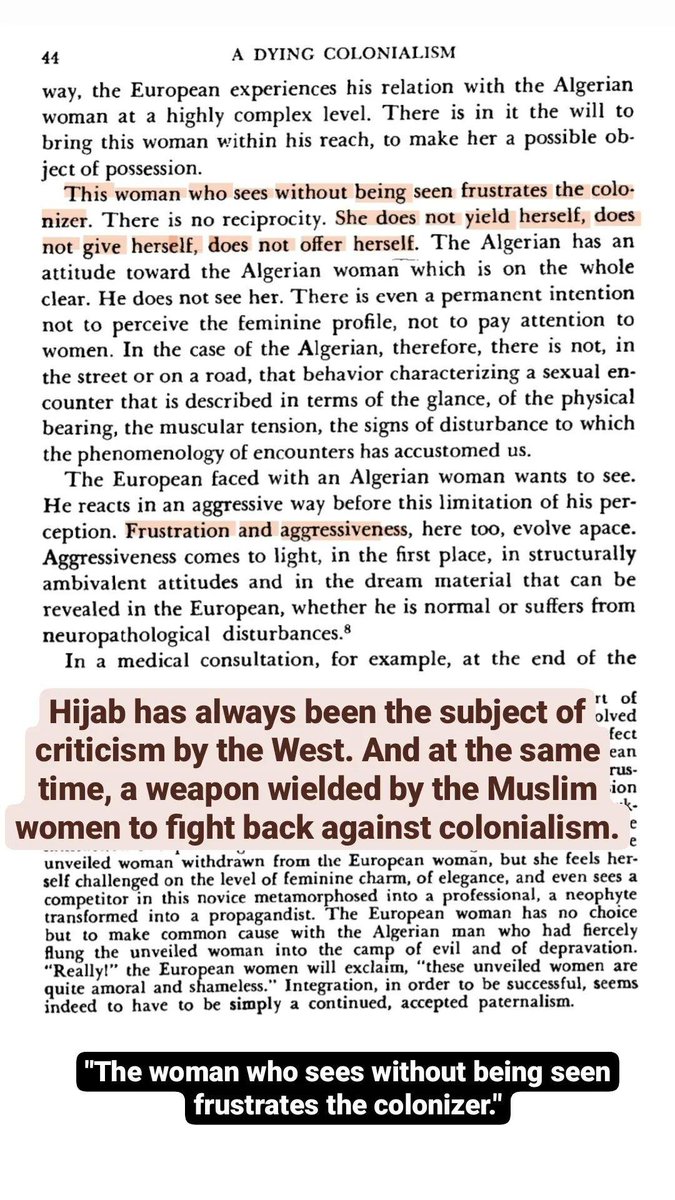
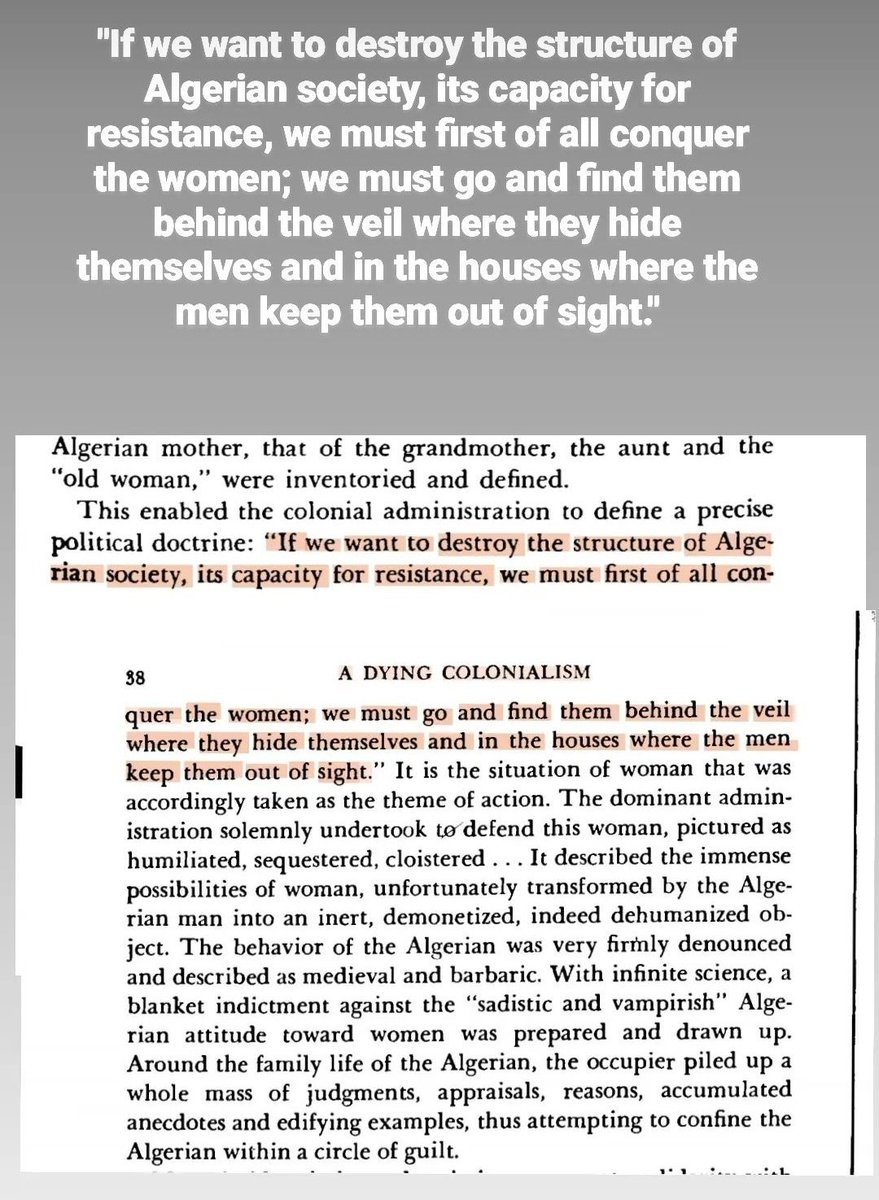
Now let's get back to the point of the voices of Muslim women. So, who has historically stood up for the "oppressed" Muslim women?
Interestingly enough, it has mostly been white western feminists & in the Muslim world, elite western educated liberals, mostly non-Muslim women.
15/
Interestingly enough, it has mostly been white western feminists & in the Muslim world, elite western educated liberals, mostly non-Muslim women.
15/
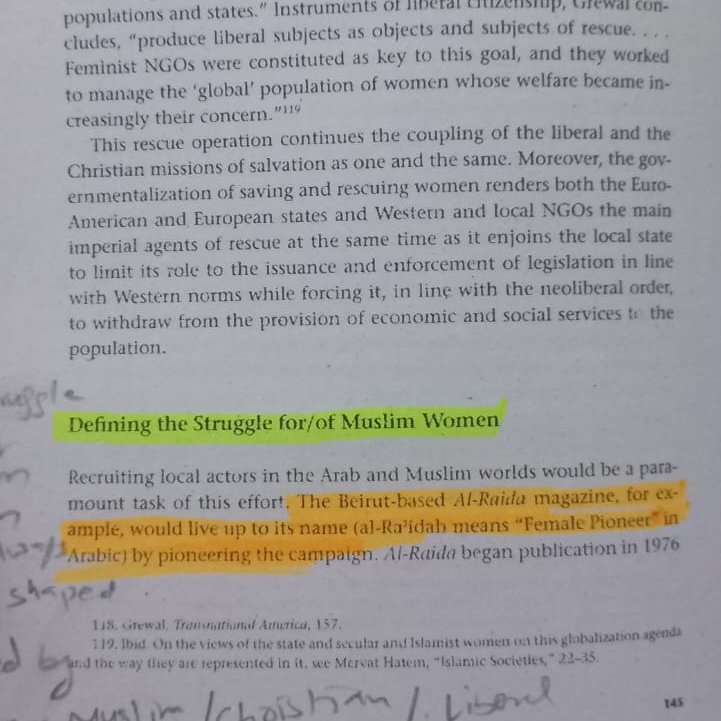
Various educational institutions were opened by Christian missionaries across the Muslim world who were committed to the dogmas and even the language of the colonial powers.
In this climate, the leading figures who took the banner of women's "empowerment" were mostly...
16/
In this climate, the leading figures who took the banner of women's "empowerment" were mostly...
16/
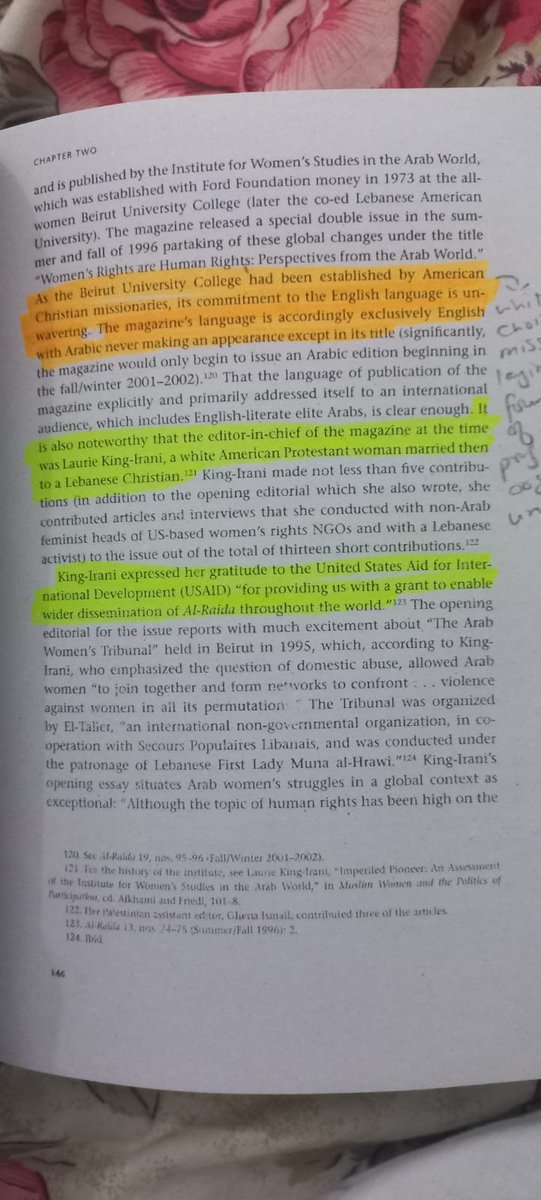
western educated non-Muslim liberal women. eg., King Irani and others.
These women would lay the foundation for the "reform" of Islamic law, indigenous cultures, and countless other missions which are being led today by Muslim feminists under the guise of women's liberation.
17/
These women would lay the foundation for the "reform" of Islamic law, indigenous cultures, and countless other missions which are being led today by Muslim feminists under the guise of women's liberation.
17/
An interesting aspect of this was that the feminist figures whose mission was to liberate them from the backward cultures were not even writing in Arabic or other local languages but only and only English.
18/
18/
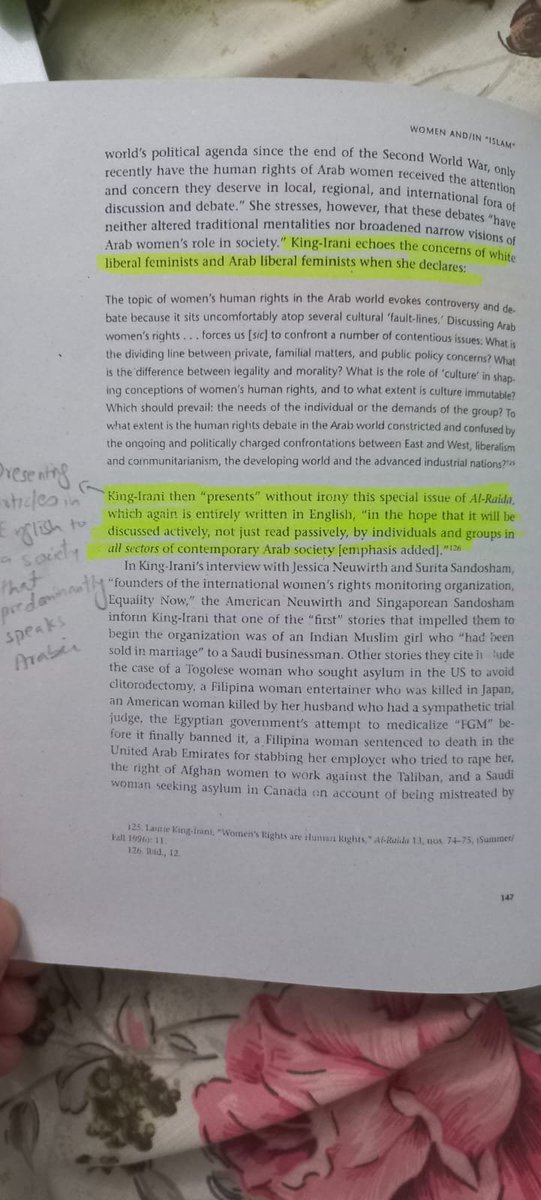
The millions of religious Muslim women who had not heard anything about feminism and its implicit (sometimes explicit) imperial and colonial agenda had not only to deal with the minority of elite Westernized women among them but also the white Euro-American feminists as well.
19/
19/
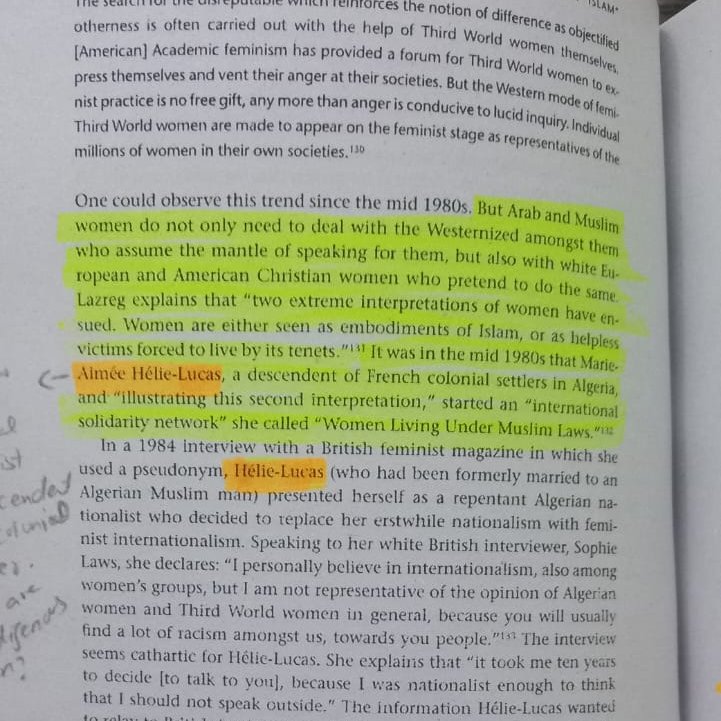
King-Irani, Helle-Lucas and other non-Muslim feminists were presented as the "voices" for the "oppressed" Muslim women, who had taken up the task of "liberating" Muslim women from their Islamic culture. An interesting observation was that the enemy was always the Muslim man.
20/

20/
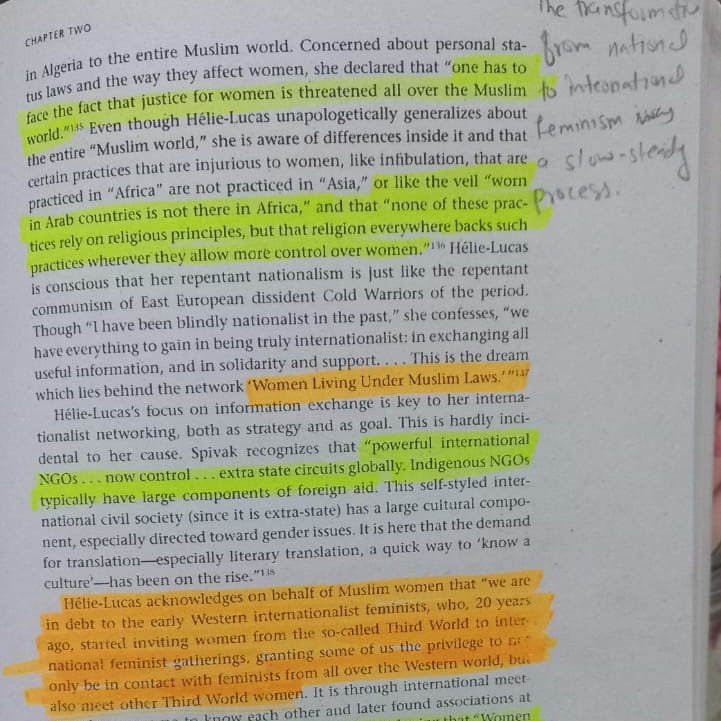

These "voices" were helped by the colonial and imperial powers to further the goals of women's liberation. This is not a new phenomenon. as you can see, this goes back all the way to colonialism.
21/
21/
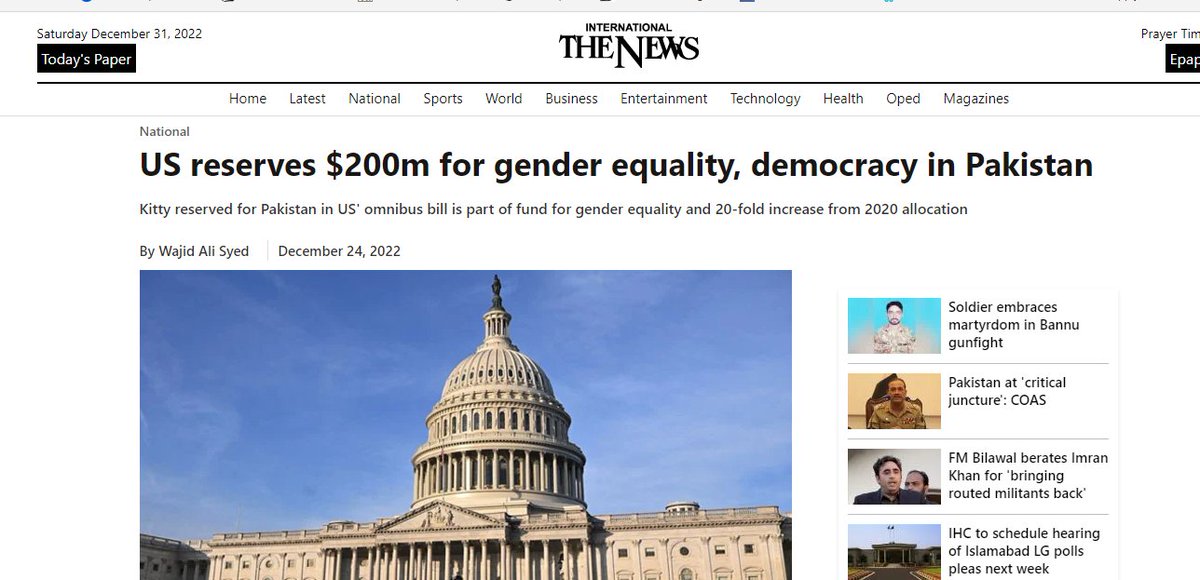
The main point is this: Islam and Islamists (people who defend Islamic values) were always seen as problems and obstacles in the way of Muslim women's liberation.
22/
22/
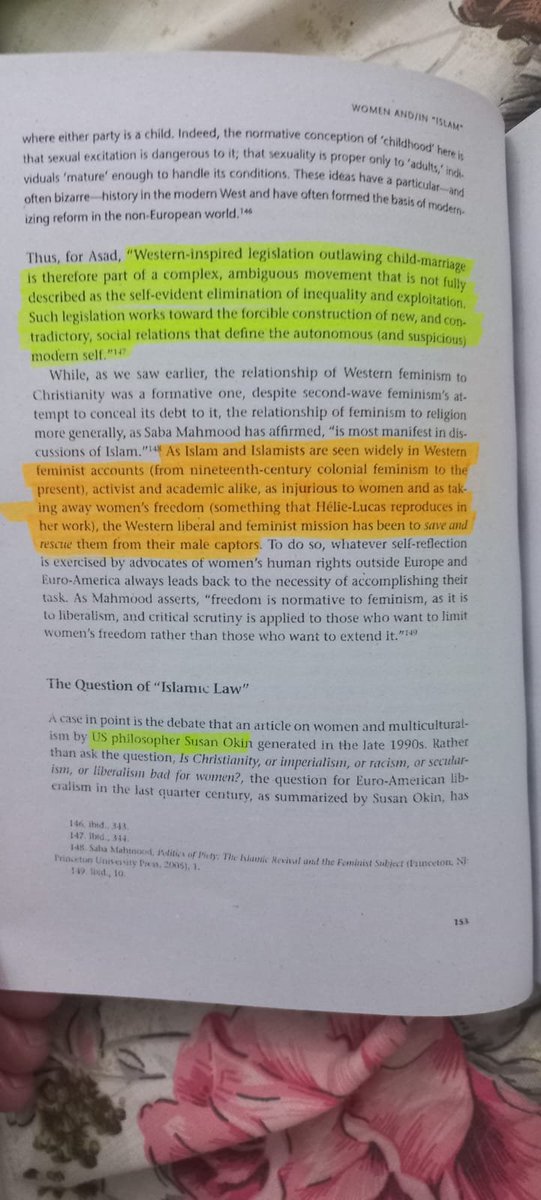
Even the US feminist Susan Okin (1990) believes that the primary target of Western Liberal feminists should be young Muslim women to save them from the barbarity of Islam and "Islamic" "cultures." She also thinks that the world would become a better place if such regressive..
23/
23/
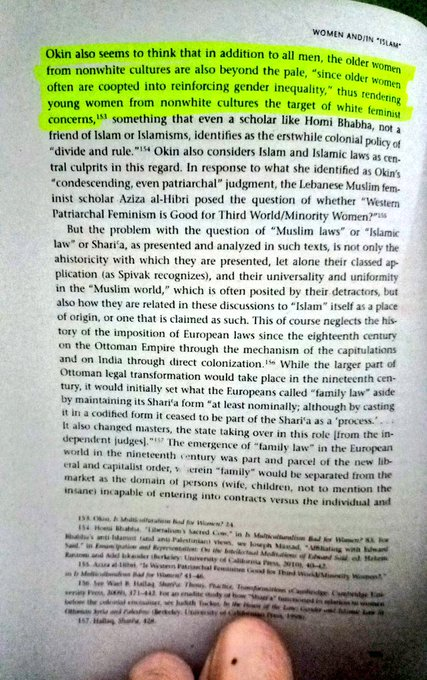
...religions disappear from the world. She says even old women can't and shouldn't be saved. But Leila Ahmed, a Muslim feminist, does refute her racist and colonial ideas.
She argues that throughout history, no one has ever argued that European women should abandon....
24/
She argues that throughout history, no one has ever argued that European women should abandon....
24/
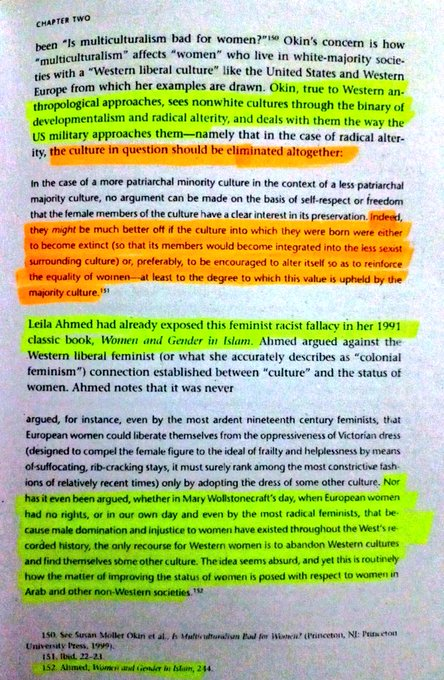
....their culture and history and society are plagued with misogyny and oppression of women.
But how conveniently is this narrative projected when the topic is about Muslim women and their "oppression".
25/
But how conveniently is this narrative projected when the topic is about Muslim women and their "oppression".
25/
But this just shows that when we trace back the genealogy of feminism, we find out that feminism is closely tied with Protestant Christianity, colonialism and imperialism on the one hand, and social Darwinism, racism and white supremacy on the other.
26/
26/
• • •
Missing some Tweet in this thread? You can try to
force a refresh

















